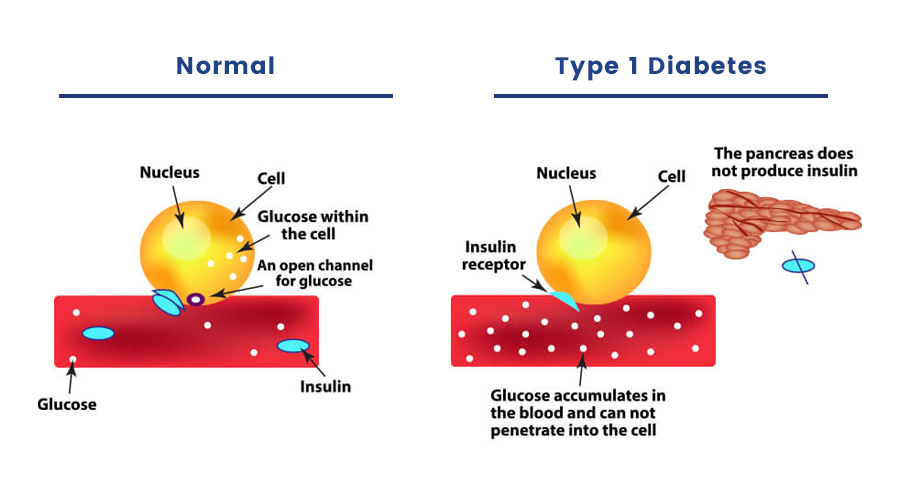TREATMENTS
Diabetes Treatment
Stem cell therapy offers hope for diabetes treatment by replacing damaged beta cells and regulating immune responses, potentially reducing the need for insulin injections and medications.
Stem Cell Treatments for Diabetics

First type of Diabetes
In first type of diabetes, the body fails to produce insulin because the immune system targets and destroys insulin-producing cells in the pancreas. While typically diagnosed in children and young adults, it can develop at any age. Individuals with type 1 diabetes require daily insulin injections to survive.
The precise reason why the body's immune system attacks beta cells, leading to Type 1 diabetes, remains unclear. While it's believed to involve genetic predisposition and environmental influences, the exact cause is not definitively understood.

Second type of Diabetes
Second type of diabetes occurs when the body doesn't produce or use insulin effectively. It can develop at any age, including childhood, but is most commonly diagnosed in middle-aged and older individuals. This type of diabetes is the most prevalent form of the condition.
This type of diabetes occurs when the cells resist insulin action and the insulin produced is not enough to overcome this resistance, the reason behind this resistance is also unknown but it is strongly assumed that obesity is directly linked to this type of diabetes.






